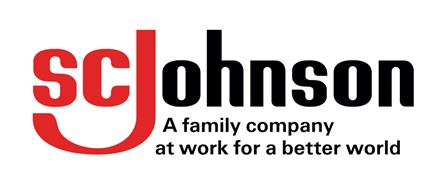New Study Shows 34% Reduction in Dengue, Zika Transmission With Innovative SC Johnson Spatial Repellent
RACINE, Wis., October 27, 2020 /3BL Media/ – A spatial repellent product designed by SC Johnson could reduce dengue and Zika infections by an estimated 34%, according to new research released by the University of Notre Dame. The data, collected from a Peru-based study, represents the second clinical trial of a five-year global program to investigate the impact of spatial repellents in reducing mosquito-borne disease. The Peru clinical trial was led by the University of Notre Dame in cooperation with the University of California, Davis and U.S. Naval Medical Research Unit Six.
“As part of our commitment to helping address some of the world’s most pressing public health threats, SC Johnson is proud to support disease prevention efforts and create opportunities for a better quality of life for underserved populations,” said Fisk Johnson, Ph.D., Chairman and CEO of SC Johnson. “Life-threatening diseases, like dengue and Zika, are preventable, yet billions of people around the world lack access to personal protection methods. We are working to prove the effectiveness of this spatial repellent so we can get it into public health systems and save lives.”
Zika, dengue, chikungunya and yellow fever are all mosquito-borne diseases that can be transmitted to humans by the Aedes aegypti mosquito. Each year, millions of people contract mosquito-borne illnesses like dengue, Zika and malaria, which can cause more than a half million deaths globally, particularly in developing countries.[i] While progress has been made in reducing mortality rates, the World Health Organization (WHO) has indicated that dengue cases have risen significantly across Central and South America in recent years.[ii] Additionally, while Zika cases have declined globally, it remains a challenging illness for vulnerable communities in endemic areas. As a result, families require additional tools to protect themselves against mosquitoes and the diseases they may carry. Spatial repellents offer a new opportunity for public health organizations to bridge the coverage gap in mosquito bite prevention.
The University of Notre Dame’s epidemiological data from the second clinical trial shows encouraging results. In addition to reducing Aedes-borne viruses infection rates by an estimated 34%, researchers found that SC Johnson’s first-generation spatial repellent technology significantly reduced the number of mosquitoes found indoors by approximately 29%.
“Mosquito-borne diseases can have a significant adverse impact on the quality of life of families, and we know that reducing mosquito bites and their numbers inside homes is key to tackling diseases like dengue and Zika,” said Thomas Mascari, Ph.D., Entomologist at SC Johnson. “This study is the most robust and conclusive study to date demonstrating the protection an insecticidal product can provide against Aedes-borne viruses, and is proof that spatial repellents can have a positive real-world impact in lessening the transmission of these diseases.”
SC Johnson provided integral industry and product expertise, manufacturing, and market access, particularly in the development and production of the Mosquito Shield™ products used in the University of Notre Dame clinical studies.
About Mosquito Shield™
The spatial repellent product was designed to be easy to use with minimal handling, which may help to increase compliance. It can be hung in semi-enclosed and enclosed spaces to continuously repel mosquitoes. Transfluthrin, the active ingredient in Mosquito Shield™, passively emanates using natural airflow to protect people from mosquitoes in a specific area. This active is registered with the U.S. Environmental Protection Agency (EPA) and is used globally in pest control products.
An earlier version of the Mosquito Shield™ product was used in large-scale, randomized, controlled clinical trials funded by The Bill and Melinda Gates Foundation, including the Peru study. An optimized version of the Mosquito Shield™, which emanates for 30 days, will be used in upcoming large-scale clinical trials funded by UNITAID in Mali, Kenya and Sri Lanka. The full WHO-VCAG report can be found here.
For more information about SC Johnson and its social corporate responsibility efforts, visit the company on Facebook, Twitter or at www.scjohnson.com.
About SC Johnson
SC Johnson is a family company dedicated to innovative, high-quality products, excellence in the workplace and a long-term commitment to the environment and the communities in which it operates. Based in the USA, the company is one of the world's leading manufacturers of household cleaning products and products for home storage, air care, pest control and shoe care, as well as professional products. It markets such well-known brands as GLADE®, KIWI®, OFF!®, PLEDGE®, RAID®, SCRUBBING BUBBLES®, SHOUT®, WINDEX® and ZIPLOC® in the U.S. and beyond, with brands marketed outside the U.S. including AUTAN®, BAYGON®, BRISE®, KABIKILLER®, KLEAR®, MR MUSCLE® and RIDSECT®. The 134-year-old company, which generates $10 billion in sales, employs approximately 13,000 people globally and sells products in virtually every country around the world. www.scjohnson.com
[i] World Health Organization. Vector-borne Diseases. (March 2, 2020). Retrieved from https://www.who.int/news-room/fact-sheets/detail/vector-borne-diseases#:~:text=It%20causes%20an%20estimated%20219,the%20age%20of%205%20years.
[ii] World Health Organization. Dengue and Severe Dengue Q&A. (Oct. 24, 2019). Retrieved from https://www.who.int/news-room/q-a-detail/dengue-and-severe-dengue

